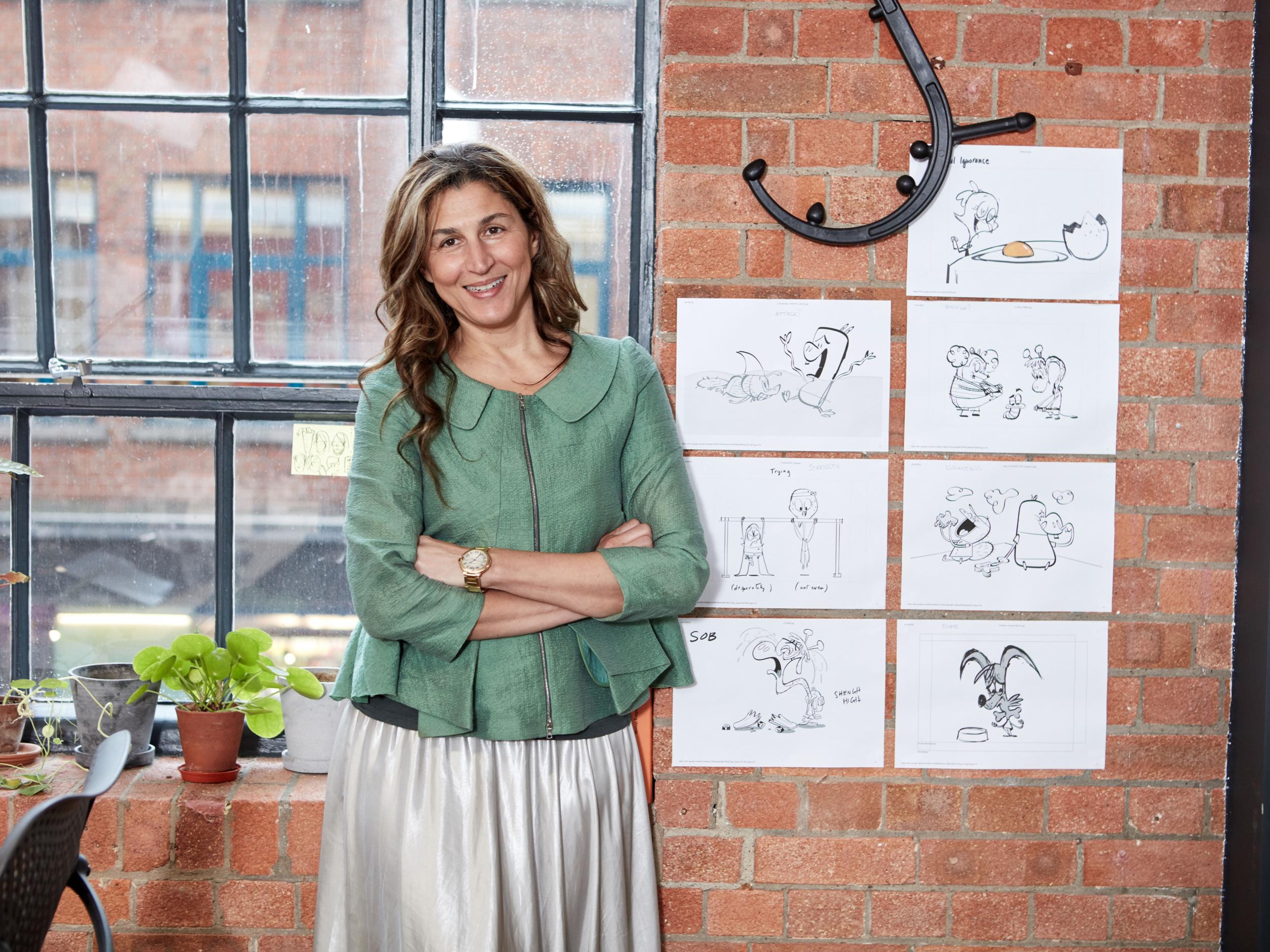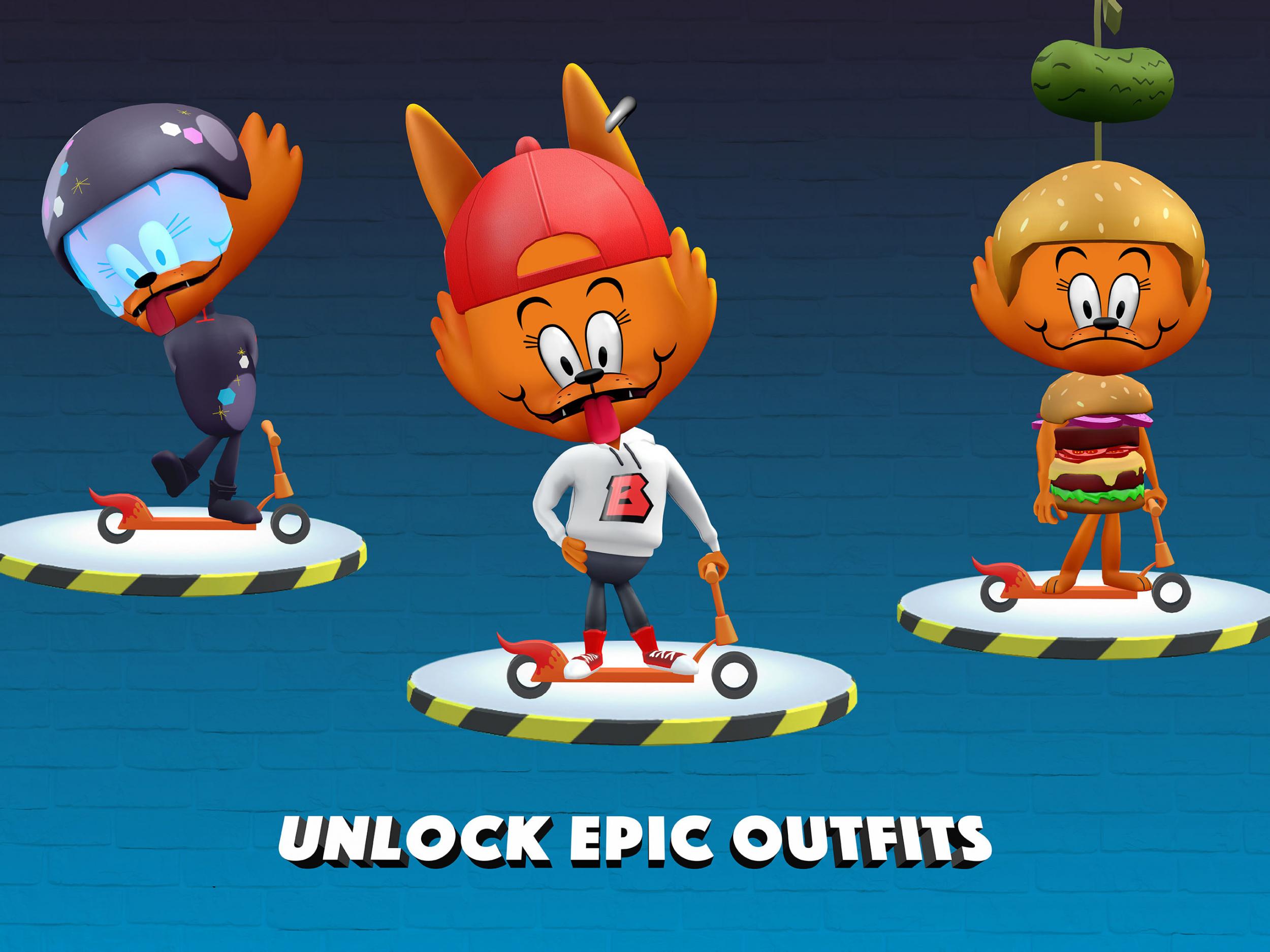The mum on a mission to bring word learning into the 21st century
Andy Martin speaks to Sofia Fenichell about her data-driven research company, Mrs Wordsmith, which examined some 200,000 books to find the best words for kids to learn


When her more mathematically inclined daughter was studying for her 11-plus, Sofia Fenichell looked around for books or games that would help her extend her vocabulary. “There was nothing,” she says. So she came up with Mrs Wordsmith, a lexicographic company. They started publishing three years ago. This month they are launching a new mobile game called Epic Word Adventure.
“I love words,” says Fenichell when I meet her at her HQ in Shepherd’s Bush. “Words have been a huge part of my life.” She was born in Algeria 51 years ago and educated in America. Her Tunisian father used to wait tables, but asked for newspapers instead of tips, learned English, became a Fulbright scholar and studied engineering in the US. “My parents were so into education. When I didn’t get into Harvard I wanted to run away and hide,” Fenichell admits. She studied at Northwestern University in Chicago instead.
After graduation she went to LA to be a screenwriter. It had to be either Disney or Pixar. “I was a total geek. I thought I had written an adult romance – for Disney!? That was the level of my immaturity.”
She spent four years in advertising, took an MBA at Columbia Business School, then interned at Goldman Sachs. She was sent to London and became a tech analyst for 10 years. When she started helping her child to develop her language, she improvised with flash cards and characters she dreamed up. Fenichell says that Mrs Wordsmith, using “a paper/digital hybrid model”, mixing books and apps, is just an extension – with better animation – of that original approach. In the beginning was the word.
Fenichell has assembled a team of interdisciplinary creatives, graphic designers, “arty-farty people”, and academics from Cambridge and NYU. But the company remains inspired by children and is driven by “a community of kids”. They publish nothing that hasn’t been vetted by a panel of six young people. Fenichell laughs: “When people come in here, they say, ‘Who’s running this place? A bunch of kids?’ And I say, ‘Yes.’”
At the same time they are very much a data-driven research company. They have brought a massive concordance engine to bear on some 200,000 books in search of the best words for kids to learn. The key criterion is word frequency – how often a particular word is used. The first 50 per cent of words we use are the commonest words, such as “a” and “the” and “and” – approximately 100 frequently recurring words. The next 45 per cent comprise 5,000 words.
But the last 5 per cent, the least frequent, are also the most powerful – what Fenichell calls “the long tail”. “We teach words that make you smarter.”

She gives me examples of the “hardest words” in Harry Potter – palmistry, imprecise, eventual. Michael Morpurgo’s War Horse offers harness, cavalry, halter. “We love words like extrapolate,” says Fenichell. “It’s challenging, ambiguous and it occurs in multiple contexts.” Their approach draws on the phenomenon of “collocation”, clusters of words that tend to occur together. So torrential goes with downpour and scurry goes with mouse.
When people come in here, they say, ‘Who’s running this place? A bunch of kids?’ And I say, ‘Yes’
Fenichell has a dim view of the existing education system. For one thing schools don’t actively teach vocabulary (except for the ones collaborating with Mrs Wordsmith). “The curriculum is old – created by old people a long time ago. And it’s under-capitalised.”
Mrs Wordsmith tries to keep up with the latest developments in neuroscience research. “There isn’t a single area of the education system that couldn’t stand a breath of fresh air,” she says. She is also of the opinion, shared by most 16-year olds, that the GCSE system should be scrapped.
But Fenichell remains an evangelical believer in the power of education. “Everything can be learned by everyone.” And she adds, “It’s never too late either.” She cites a study done of London cab drivers before and after taking “the Knowledge”. “You can see that the structure of their brains changed – and they were adults.”
She respects Ernest Hemingway’s six-word short story, “For sale: baby shoes. Never worn.” But she offers an even shorter one in its place, a mere two words long: “She wept”. She likes the word “wept”. Another good short word she recommends is “try”, for which Mrs Wordsmith has given a child-friendly definition: “make an effort to do something” (illustrated with a couple of characters trying to catch stars in a net).
I chip in aleatory, one of my favourite words. Fenichell comes back at me with an upbeat definition: “Luck throws the best things your way – but you have to know how to reach out and grab them.” Mrs Wordsmith is aiming to be the Pixar of the literary. Every word has to be illustrated and contain a narrative.
One of the greatest ever academic studies of child learning demonstrated that intellectual development between the ages of nought and three corresponds to one very simple thing: the sheer number of words the child is exposed to. Television doesn’t count. Someone has to be speaking directly to the child. Mrs Wordsmith builds on this insight for children over three with their interactive games. A study by the National Literacy Trust has shown that Mrs Wordsmith-boosted kids perform 50 per cent better on vocabulary tests.
Fenichell says, “We want kids to get into trouble for buying too many books – that’s our dream.” Parents may fear an accumulation of micro-transactions. But fortunately there is no in-app purchasing in Mrs Wordsmith. The costs are all up-front and transparent. Their new mobile game, “Epic Word Adventure”, launches “Barksy”, a girl graffiti artist who rides around on a skateboard (or hoverboard) with her spray can, decorating the walls of Blabberville with great words like nemesis or accomplice or CLASH! You play the game and collect these words and add them to your Blabber bank. Epic Word Adventure is intended to be on a par with – or even preferable to – games like Fortnite or Minecraft. Fenichell quotes one of her academic colleagues: “It’s the only game your parents will let you play seven days a week.”
Wittgenstein wrote (in the Tractatus Logico-Philosophicus) that: “The limits of my language are the limits of my world.” Mrs Wordsmith is trying, one way and another, to make that world a little less limited. As I’m leaving, Sofia Fenichell neatly sums up for me what they do at Mrs Wordsmith in a way that any child could easily understand: “All we do is think about words all day and every day.”
Join our commenting forum
Join thought-provoking conversations, follow other Independent readers and see their replies
Comments